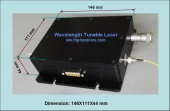Description
Our tunable lasers are engineered using our patented innovative tunable fiber Bragg grating (FBG) technology. This advanced technology ensures that the lasers maintain "all-fiber" connections internally, resulting in a low-loss laser cavity that delivers exceptional performance. The design is focused on minimizing noise while achieving a high optical signal-to-noise ratio of over 75 dB. This makes our laser systems not only compact and robust but also highly efficient and reliable.
The compact nature of our tunable laser systems is complemented by their robust construction, making them ideal for various applications where space and durability are of concern. Additionally, the inclusion of additional output/input terminals allows these lasers to function as both tunable FBG and ASE sources, providing versatility in their use. This dual functionality is a testament to the innovative design and engineering that goes into each unit.
Moreover, the integration of tunable FBGs with fiber pigtailed semiconductor lasers enables external cavity wavelength tuning. This configuration allows for a large tuning range, providing users with the flexibility to adjust the wavelength as needed for their specific application. The precision and adaptability of our tunable lasers make them a valuable tool for professionals in the field.
Tunable Fiber Laser 2000nm
Specifications
| Center Wavelength: | 2000 nm |
|---|---|
| Output Power: | 0.01 W |
| Output Mode: | Not Specified |
| Beam Quality (M^2): | 1.05 |
| Output Fiber Type: | Other / Non-specified |
| Interface: | Other / Not-specified |
| Cooling: | Other |
| Electrical Requirements: | Other / Not Specified |
| Wavelength Tuning Range: | 25 nm - 40 nm |
Features
- Innovative Tunable Fiber Grating Technology: Our tunable lasers utilize patented tunable fiber Bragg grating (FBG) technology for precise wavelength tuning.
- All-Fiber Connections: The laser system features all-fiber connections, ensuring a compact, robust design with low loss and high efficiency.
- Large Tuning Range: Offers a broad tuning range of over 25 nm, extending up to 50 nm.
- High Optical Signal-to-Noise Ratio: Achieves a high optical S/N ratio of over 75 dB, providing low noise performance.
- Versatile Output Ports: Equipped with tunable FBG and ASE source output ports for enhanced functionality.
- Compact Dimensions: The laser system is compact, measuring 151 x 116 x 51 mm, making it suitable for various applications.
- Custom Wavelengths Available: Contact us for custom wavelength configurations to meet your specific needs.
Applications
- Telecommunications: Utilize tunable lasers for wavelength division multiplexing (WDM) systems to enhance data transmission capabilities and optimize bandwidth usage.
- Sensing and Measurement: Employ tunable lasers in fiber optic sensing applications for precise measurements in fields such as environmental monitoring, structural health monitoring, and industrial process control.
- Medical Diagnostics: Use tunable lasers in optical coherence tomography (OCT) for high-resolution imaging in medical diagnostics, particularly in ophthalmology and dermatology.
- Research and Development: Integrate tunable lasers in laboratory settings for research applications, including spectroscopy, photonics research, and materials science investigations.
- Optical Testing and Characterization: Implement tunable lasers in the testing and characterization of optical components and systems, providing flexibility in testing across different wavelength ranges.
- Metrology: Leverage tunable lasers for precision metrology applications, enabling accurate distance and displacement measurements.
- Defense and Aerospace: Apply tunable lasers in defense and aerospace technologies for applications such as LIDAR, target designation, and secure communication systems.
- Industrial Manufacturing: Use tunable lasers in industrial manufacturing processes for tasks such as laser cutting, welding, and material processing with enhanced precision and control.
Frequently Asked Questions
How can I get a custom wavelength for this tunable fiber laser?
What are the applications of this tunable fiber laser?
What are the features of this tunable fiber laser?
What are the specifications of this tunable fiber laser?
What is a tunable fiber laser?
Similar Products





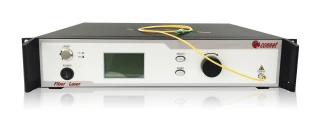
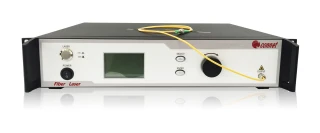
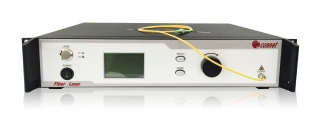
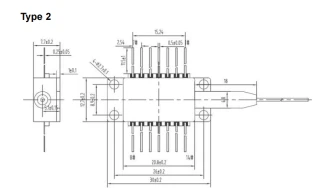
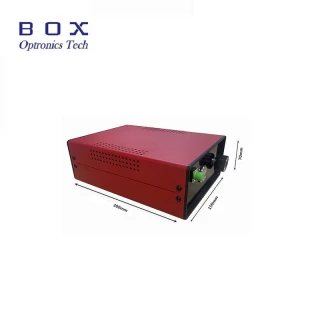
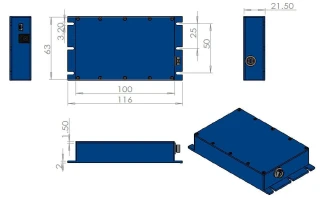
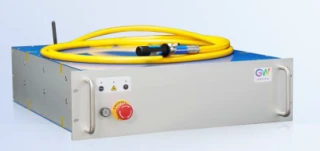
Your inquiry has been received.
Create an account by adding a password
Why create an account?
- Auto-complete inquiry forms
- View and manage all your past messages
- Save products to your favorites
- Close your account anytime — no hassle
